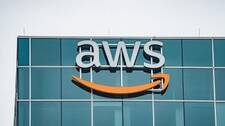After Google outage, telcos should think twice about public cloud

Source:-https://urgentcomm.com
Google’s Monday outage lasted just 45 minutes, barely enough time for online chitchat about a Chinese cyberattack to circulate. But for some people the planet might as well have been hit by a solar flare
Email systems used by millions were inaccessible, Google Docs was sealed off and even YouTube’s exabytes of video narcissism simply disappeared. Housebound workers brewed coffee as they pondered life after the public cloud – a return to ox-driven plows and slate-based records, perhaps.
The economic cost of this 45-minute outage is likely to matter. A temporary Internet shutdown reportedly costs the British economy about $141 million a day. This was not so bad, and yet an Internet without Google is a shuttered office block for those reliant on its suite of digital services. Extrapolate this globally – millions temporarily barred from entering the workplace – and the damage becomes clear.
Thankfully, Google’s engineers had the systems back up while the coffee was still warm. But imagine if the outage had lasted several hours, or a day? That alone should make companies stop and think before they park their IT systems in the public cloud. And yet there is little sign of caution. Wary executives are pilloried as dim-witted Luddites. Organizations laud tie-ups with public cloud providers as if they are no-risk deals.
Telecom firms are buying in. Giffgaff, a UK mobile virtual network operator owned by Spain’s Telefónica, yesterday became an AWS tenant in worrisome news for the IT employees who currently manage Giffgaff’s systems. Germany’s Deutsche Telekom announced a similar relationship with Microsoft Azure last week. Both those deals came after Nokia, a Finnish maker of telecom equipment, picked Google as its public cloud partner in November.
Evangelists preach about efficiency. Running IT systems from the public cloud is much cheaper than maintaining on-premises or private cloud equipment and staff. Three, the smallest of the UK’s four mobile network operators, last year said it would cut IT expenses by a third, and jobs by 15%, thanks to its own arrangements with Microsoft Azure. Squeezed service providers see a way to juice profits.
Hyperscale oligopoly
In principle, there is nothing wrong with the public cloud. Complaining about any use of it would be ludicrous when the Internet underpins so much economic activity. The problem is that so few companies qualify as public cloud providers. Ignore the Chinese, and the only genuine “hyperscale” firms are AWS, Google Cloud and Microsoft Azure. Their collective muscle makes it virtually impossible for anyone else to compete. And that means companies are dependent on just three US giants for some of their most critical systems.